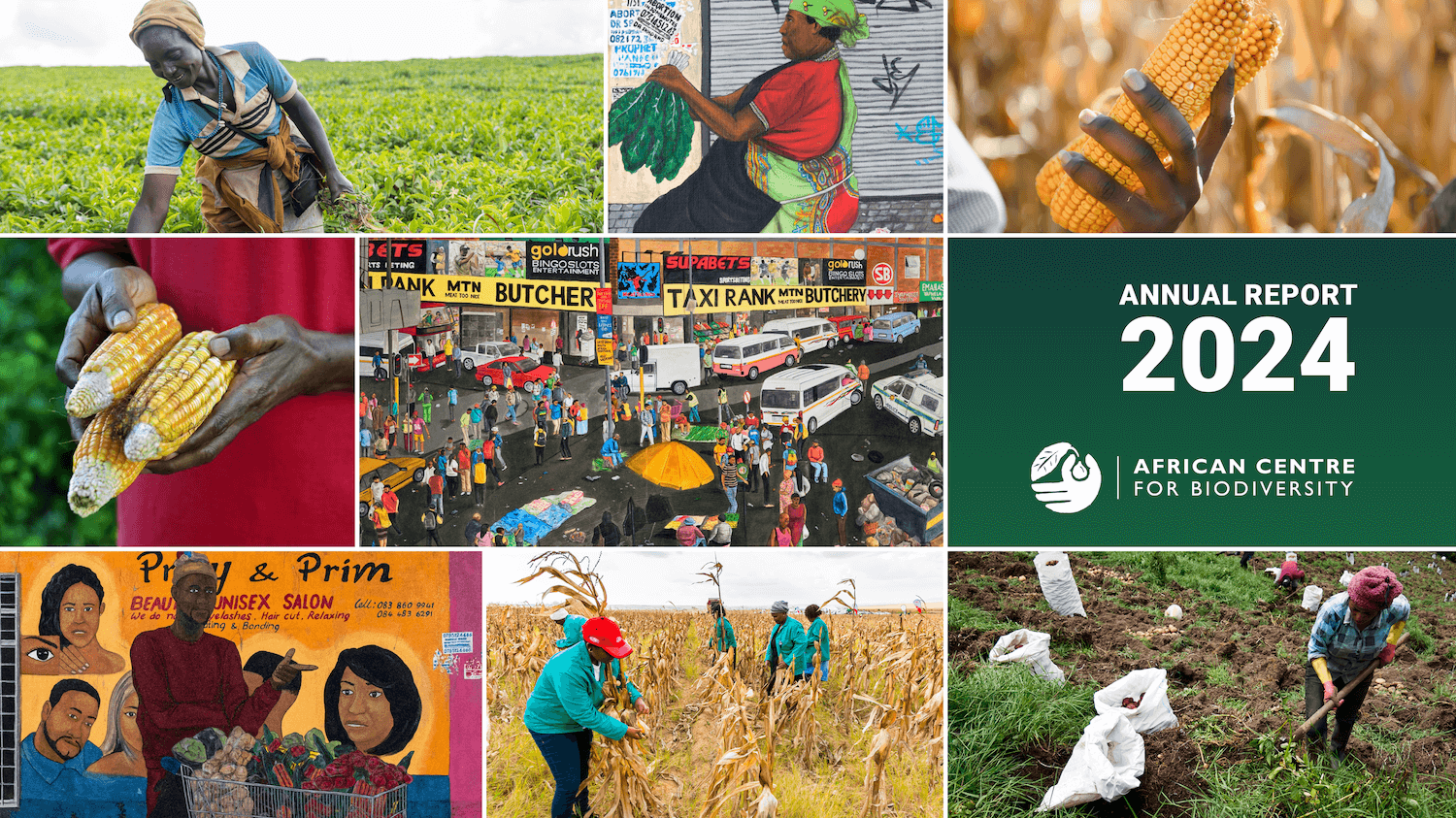Latest Resources

26 June 2025
ACB 2024 Annual Report: Our Year in Review
In 2024, the ACB collaborated with progressive civil society networks to advance an integrated agroecological response to the biodiversity, climate change, and sustainable food systems issues of our time, intensifying our efforts to conceptualise what just and sustainable food systems could look like in the future. We actively participated in several policy processes in South […]

30 May 2025
Tracing ACB’s sustained resistance to GM wheat in South Africa
In this web post, we trace the push to introduce genetically modified (GM) wheat into South Africa and Africa, beginning with Monsanto’s 2004 application to import Roundup Ready wheat into SA, through to the current ongoing opposition led by the ACB. After Monsanto’s initial application was rejected, there was a long period before further applications […]

24 March 2025
South African People’s Tribunal on AgroToxins exposes government’s failure to protect right to life
The South African People’s Tribunal on AgroToxins (SAPToA) put government on trial in the court of public opinion this past weekend for gross dereliction of its constitutional duties to protect the right to life. Farm workers and community members shared harrowing testimonies of how government has persistently failed to protect farm workers, their families, and […]

16 January 2025
Media campaign highlights urgent need to ban Terbufos, HHPs
In December, the ACB, alongside a coalition of organisations, academics, and unions, submitted a letter of demand to the Minister of Agriculture, Mr John Steenhuisen. This urgent appeal calls for the immediate ban of Terbufos — a highly hazardous pesticide implicated in the tragic deaths of six children in Naledi, Soweto, last year. To amplify […]

6 December 2024
One year later and no substantive response to our call for a review of 2,4-D
Minister Steenhuisen, when can we expect the Registrar to respond? Today marks a year since we called for a review of the registration of 2,4-D in South Africa, in a letter to the Registrar: Act No. 36 of 1947, Mr Jonathan Mudzunga. With no substantive response forthcoming, despite substantiation in a further submission, and persistent […]

23 October 2024
Arrêt inédit de la Cour de cassation dans l’affaire ACB contre Monsanto/Bayer et l’État
Annulation de l’autorisation commerciale d’un maïs génétiquement modifié tolérant à la sécheresse Cliquez ici pour lire en anglais. Cliquez ici pour lire en espagnol. Johannesburg, le 22 octobre 2024 Après neuf ans de procédure judiciaire ardue menée par le Centre africain pour la biodiversité (ACB), un collège complet composé de cinq juges de la Cour […]

16 October 2023
World Food Day 2023: Working towards a just food system for all
This World Food Day, marked annually on 16 October, we’re connecting the dots between agriculture, our wider food system and the multidimensional crises we face, which includes climate change. The industrialised food system, from agricultural inputs and production to consumption, transport and storage, feeds climate change, and climate change, in turn, impacts the food system, […]

3 March 2023
Agroecology advocacy meeting held in Suurbraak
In February, together with the Environmental Monitoring Group (EMG) and Trust for Community Outreach and Education (TCOE), the ACB hosted a meeting in Suurbraak, Western Cape, bringing together a network of farmer and civil society organisations to discuss a strategy to approach government to support agroecology. Through the lens of advocacy, and a focus on the challenges facing […]

20 June 2020
Stephen Greenberg’s departure from the ACB at the end of June 2020
Sadly, at the end of June, the ACB’s senior researcher Stephen Greenberg is departing from the ACB. In a joint letter by executive director Mariam Mayet and Stephen, they reflect on their journey together. We are writing together, Mariam and Stephen. We have found ourselves walking the same path for a number of years now, […]

15 February 2015
Manipulate and Mislead: How GMOs Are Infiltrating Africa
The most persistent myth about genetically modified organisms (GMOs) is that they are necessary to feed a growing global population. Highly effective marketing campaigns have drilled it into our heads that GMOs will produce more food on less land in an environmentally friendly manner. The mantra has been repeated so often that it is considered […]
